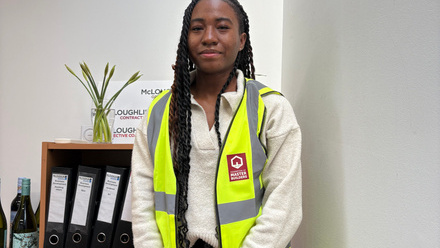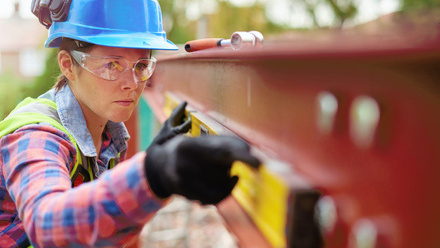Welsh Government’s plans to build more, build better, and build low carbon are all ambitions that the Federation of Master Builders shares. It’s commendable that the rhetoric has also been followed by hard cash, set out in the recently announced Welsh Government draft budget.
However, commitments such as:
- £1bn to support the delivery of 20,000 low carbon social homes
- £550m to decarbonise existing homes
- £375m to improve building safety
beg a niggling concern in the back of my mind: who is actually going to carry out all this work?
Current labour shortfall
Demand for building work in Wales is currently very high, with 77% of FMB members reporting higher than normal enquiry levels. However, small builders are struggling to meet demand with 60% saying they’ve had to put building projects on ice as they simply don’t have enough skilled labour to carry out the work (more on these stats in our latest State of Trade Survey).
Of course, these are unprecedented (that word again!) times, and Covid, and to a lesser extent Brexit, has without a doubt exacerbated the problem. However, the construction skills crisis is, unfortunately, a long-term trend and an issue that both the sector and countless governments have failed to grapple with long before anyone had even heard of “Covid” or “Brexit”.
If we don’t have enough skilled workers to meet today’s demands, how are future demands going to be met, especially if those demands are increased?
Five solutions to fix the skills crisis
- Licence the UK construction industry. This would attract more and better talent into the sector by improving the image of construction as a career choice, and not presenting it (as sadly is often the case) as a last resort for learners and those advising them (parents, teachers, careers advisers etc). The sector is under-regulated resulting in cowboy builders who, although low in number, are doing untold damage and are feeding misconceptions of an unprofessional industry. This is why the FMB is leading a campaign to license the UK construction sector.
- Embrace technology. Construction is currently a labour-intensive sector; unnecessarily so in some instances. We must do more to embrace technological advances, changing building methods, and off-site construction.
- Greater collaboration. Whether it’s working more closely with the manufacturing sector to improve productivity, or building a closer relationship between industry and education to do a better job at selling construction careers to learners.
- Tackle the high drop-out rate. Welsh Government should commission a piece of work to assess then address high drop-out rates in built environment Further Education courses. Far too many start construction courses without finishing them.
- Much more needs to be done to make the sector more representative. Apart from being the right thing to do, failing to attract over 50% of your population into a sector that’s in the midst of a skills crisis makes no sense. The sector is grossly under-represented by women (15% of the workforce with just 2% working on-site); black, Asian, and minority ethnic (BAME) workers (6% of the workforce); those with a disability (6% of the workforce) and those who identify as Lesbian, Gay, Bisexual, Transgender, Queer or Questioning (LGBTQ+) (exact figure unclear but 60% of LGBTQ+ of construction workers say they’ve experienced homophobic and derogatory terms at work).
There’s much more that could and should be done; these suggestions are just a starter for 10. Unfortunately, there is no silver bullet to this problem but FMB Cymru will continue to work with Government and others to find and implement solutions. If you want to keep in touch with the FMB in Wales, or have solutions of your own to contribute, you can email me at [email protected]







